Hobo Hotel Marks Its 20th Anniversary
By Kerri Cooke
When I walk into Hobo Hotel, cats are frolicking in the lobby, hanging out by windows or lying under chairs. The room is more playground — as cats hop from tabletop to tabletop or paw around a Hobo Hotel bracelet — than lobby.
A big portrait of Hobo, the cat whom the shelter is named after, is visible as people walk in the door. A black and white cat named Monterrey and a golden and black cat named Furball are among the congregation in the front room.
Hobo Hotel — which is celebrating its 20th year since Carol Cain began feeding wild cats outside her home and Bette Talbot and Collie Rouyer came onboard to help rescue homeless cats — is a fitting name for a shelter that rescues and houses street cats. After all, many of these cats are just passing through on their way to their forever home.
Finding a forever home for each cat is what Talbot and Rouyer hope for. Sometimes this simple task can be harder than you would expect. A pet is a commitment, and while Talbot and Rouyer want people to adopt the cats, they need people to understand the responsibility that comes along with them.
Talbot and Rouyer are two of the three co-founders of Hobo Hotel. Carol Cain passed away in 2010.
Hobo Hotel is the only no-kill shelter in the area. Rouyer says that she knew from the beginning she “couldn’t be a part of something that kills things.”
However, Hobo Hotel’s main purpose is to rescue homeless cats — not to accept drop-offs. They have limited space and resources and are “not here to accept other peoples’ rejected pets.”
A Tour
Talbot and Rouyer show me around the building, which includes a quarantine room, a room full of kittens waiting to be neutered or spayed, and rooms with cats waiting to be adopted. They also have a closet for a washer and dryer, a washroom and a conference room.
Cleaners come in every day, and in addition to keeping the facility as clean as possible, they help keep an eye on the cats. If a cat is sick, they help spot the problem since they see the cats every day, up close and personal.
In the hallway there is a white cat that looks part Siamese. His name is Fluffer, and he has been at Hobo Hotel for three or four years. He was found behind a grocery store in horrible condition. Now, he has to be shaved because he can’t groom himself, since he had to have all his teeth pulled except one.
It is safe to say he is an old cat. He never moves from his lounging spot as I pass by. Due to his strange look, Talbot and Rouyer assure me jokingly that they are sure he is part cat.
The room with animals waiting to be fixed was full of all kinds of kittens. The average number of adoptions a month at Hobo Hotel is 25. Most of the adoptees are kittens. Just as in child adoption, the younger a cat is, the better chance it has of being adopted.
Rouyer recounts how Hobo Hotel received newborn kittens when a cat gave birth on a boat on one occasion. The boat headed to Lake Charles, and the volunteers named the kittens after the cities they passed through — Eunice, Basile, Hayes …
We walk into the Happy Room, which houses an adorable kitty named Anastasia and a few other younger cats fixed and ready for adoption. The occupants of this room can be as frisky as they are cute since they are still young.
The Villa Meow, a room where older cats live, houses cats that Talbot and Rouyer fear will be at Hobo Hotel for the rest of their lives. These cats have been at the shelter for a while already. One specific cat, Waldene, looked at me elegantly from her superior vantage point on some play equipment near the ceiling.
In this room there is a back door with a cat opening at the bottom. This leads to the Catio, a fenced-in area where the cats can relax and enjoy being outside rather than having to be confined indoors day after day. The Catio was built in 2016, and the outside of the door is painted with a beautiful mural in memory of Andrew Garofolo.
As older cats are set in their habits and will have a shorter lifespan left than a younger cat, they are rarely adopted. This makes the adoption of an older cat all the sweeter for Talbot and Rouyer.
The pair encourage older citizens to adopt an older cat rather than a kitten. There is also a reduced adoption fee for those over the age of 55 who adopt an older cat. The fee is $75 versus the normal $100.
Ideally, you want to outlive your pet or your pet can become ownerless. Rouyer says that sometimes people die and family members bring their cat to Hobo Hotel. They are the “grievingest cats,” she says. She recommends asking other family members if they want the cat, advertising the cat on Facebook or going around to various local vets to see if they can take them rather than bringing them to Hobo Hotel.
The Sunshine Room (for special needs) currently is home to two cats. One cat has the equivalent of HIV (which can’t be transferred to humans) and the other cat has heartworms, a problem which seems to be increasing in cats lately.
Helpful Programs
Hobo Hotel has several programs the public can utilize depending on their various needs or wants. But first, there is a program directed towards feral cats.
For feral cats, Hobo Hotel has a program called Trap, Neuter, Return. The cat is taken in, given surgery and returned to its natural environment. Hobo Hotel does not accept any cats that are not tame.
By spaying or neutering the wild cat population, they hope to reduce the number of homeless cats. They have a chart inside their facility that shows how two cats can produce 12 kittens in a year, which turns into 144 in two years.
Also, Talbot and Rouyer are adamantly against declawing. They believe it makes cats more anxious because they are without their natural defense system.
While I am there, a woman returns a cat. Her husband had demanded that she have the cat declawed or else. In the end, she gave up the cat minus it claws. Talbot and Rouyer joke that they could give me enough information to write another story on boyfriends and husbands versus women’s cats. Rouyer jokes, “leave the boyfriend, keep the cat.”
There is a Foster to Adopt program by means of which a person takes home an older cat to see how it works for the two of them. It is a way to make sure the human and the cat are a good fit. And Rouyer points out that “the way cats act here are not the way they are going to act at your house.” Since the cats are in a communal environment at the shelter, they get into small fights and can be a little more aggressive than they might normally be.
There is also a new program called Pet Vacation, which is an opportunity to give older cats who have not been adopted a break from living in the shelter for several months. Hobo Hotel pays all of the vet bills during that time, and Rouyer says it is the perfect opportunity for a college student home for summer break — although the program doesn’t specifically apply to just one demographic or situation.
How The Shelter Runs
While Hobo Hotel is a no-kill shelter, it only exists because of the kindness of the community. In fact, Talbot says she has been “impressed by how well the community has accepted a no-kill shelter and supported it.”
Since Hobo Hotel doesn’t make any money off the adoption fee (that money is used largely for vet bills and site maintenance), the shelter runs largely through donations — both financial and in-kind. Almost everything is done through donations.
The sign for Hobo Hotel was a donation, and the building of the Catio and the catification of the facility was made possible through financial donations. The money not only provides for the physical care of the cats but also has allowed equipment to be installed for mental and physical stimulation.
Donations Hobo Hotel is always in need of are food and cleaning supplies (a full list can be found on their website).
The other aspect that ensures Hobo Hotel continues to run is dedicated volunteers. There are 10 to 15 volunteers who have been assisting Talbot and Rouyer from the get-go.
The volunteers are known to give new cats names based on changing themes. For a while cats are given Cajun names, then Japanese names, etc. Rouyer lightheartedly says one of the first things most people do when they adopt a cat is change their name.
However, volunteers are always another ongoing need because the cats need a lot of care. Volunteers help socialize the cats by playing with them. Volunteers can choose the times and days they are at the shelter. The process is very flexible, so anyone who has a mind to volunteer can. Those who are cat lovers but do not or cannot own a pet are the perfect candidates for such a position.
Looking back, Hobo Hotel has come so far. It started off with a handful of cats in a trailer and there are now dozens of cats housed in a building owned by a fellow cat lover. Rouyer says they’ve “saved the lives of so many cats and given them good homes.”
Roni Kimmerly, head of the fundraising committee, is organizing an event for the Hobo Hotel 20th anniversary. Those at Hobo Hotel want it to be a “celebration more than a fundraiser.” The celebration will take place Tuesday, Oct. 22, from 6 to 9 pm at the Charleston Bistro. Tickets are $40 per person, which includes a full meal. Rory Partin will provide the entertainment, and a silent auction will occur.
Adoption hours at Hobo Hotel are Monday through Friday, 10 am to 5 pm, and Saturday, 1 to 5 pm. If you want to find out more about Hobo Hotel, visit hobohotelforcats.com (there are bios on some of the cats), call 439-2428 or drop by their location, 650 E. School St.
Cats can also be adopted at local pet stores — PetSmart, Petsense and Petco. And some of the cats are featured on Channel 29 the second Wednesday of every month.



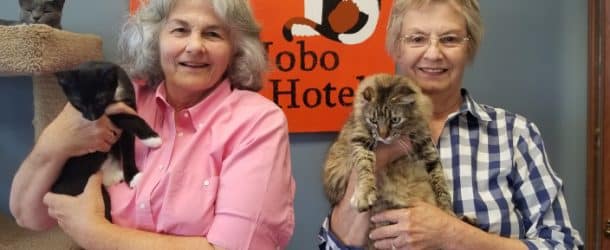
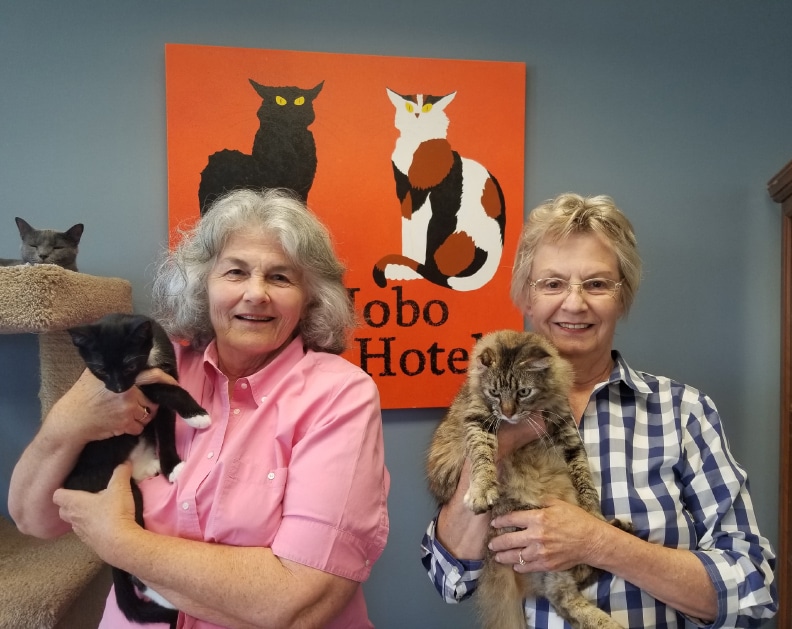
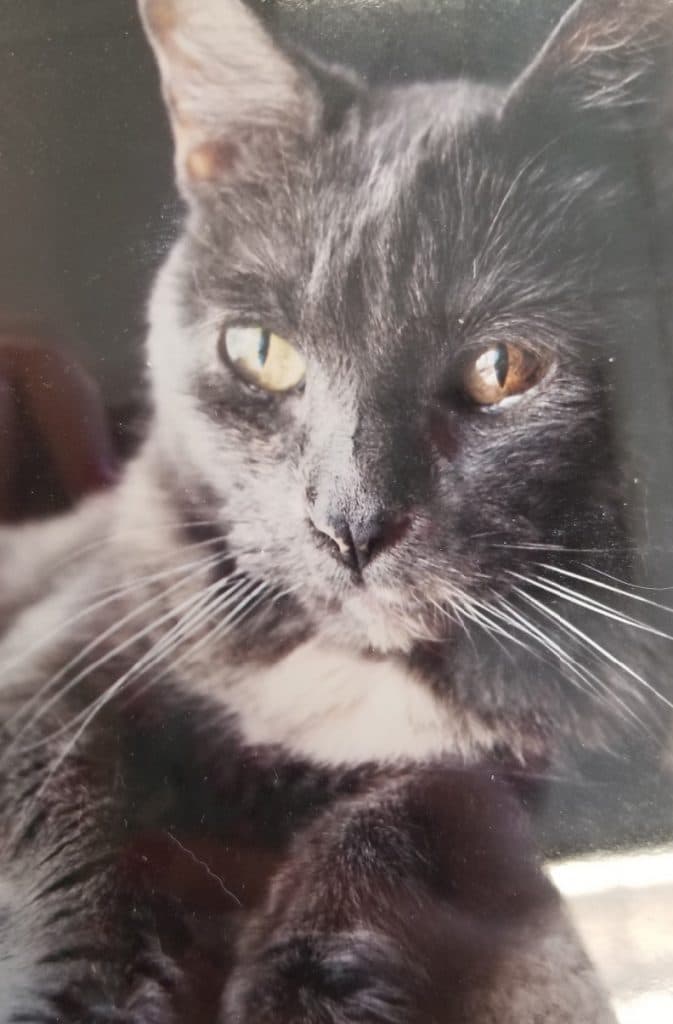
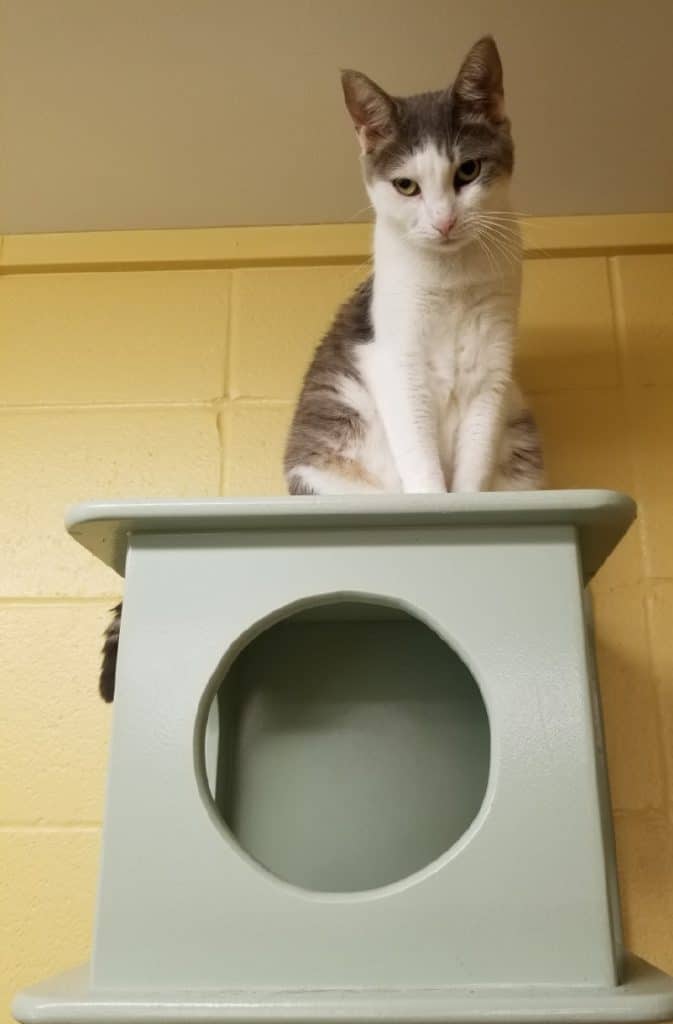

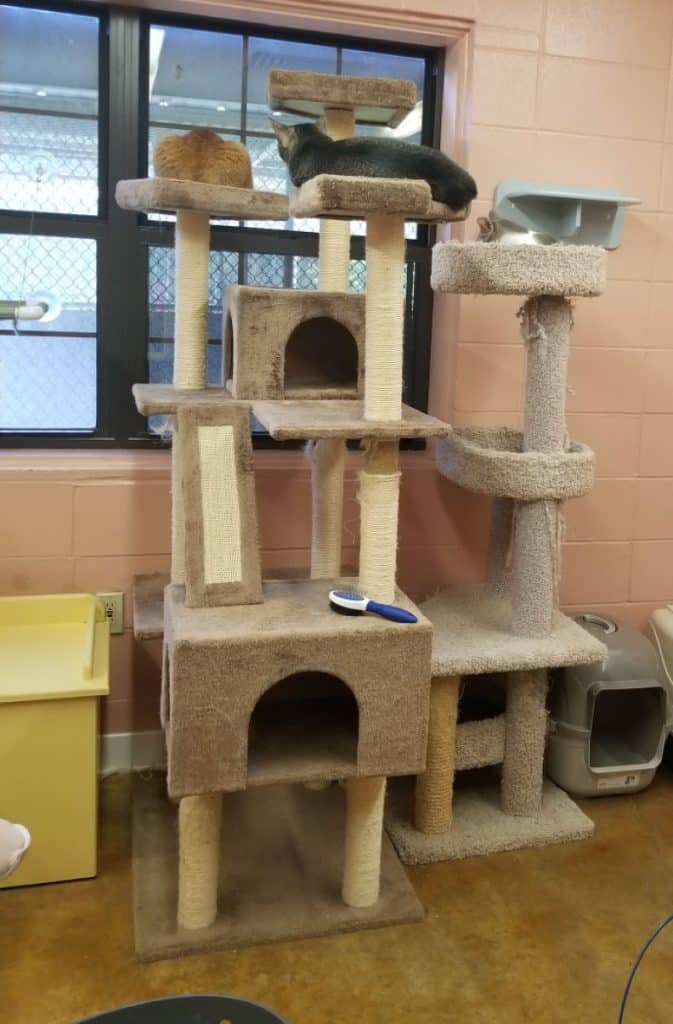
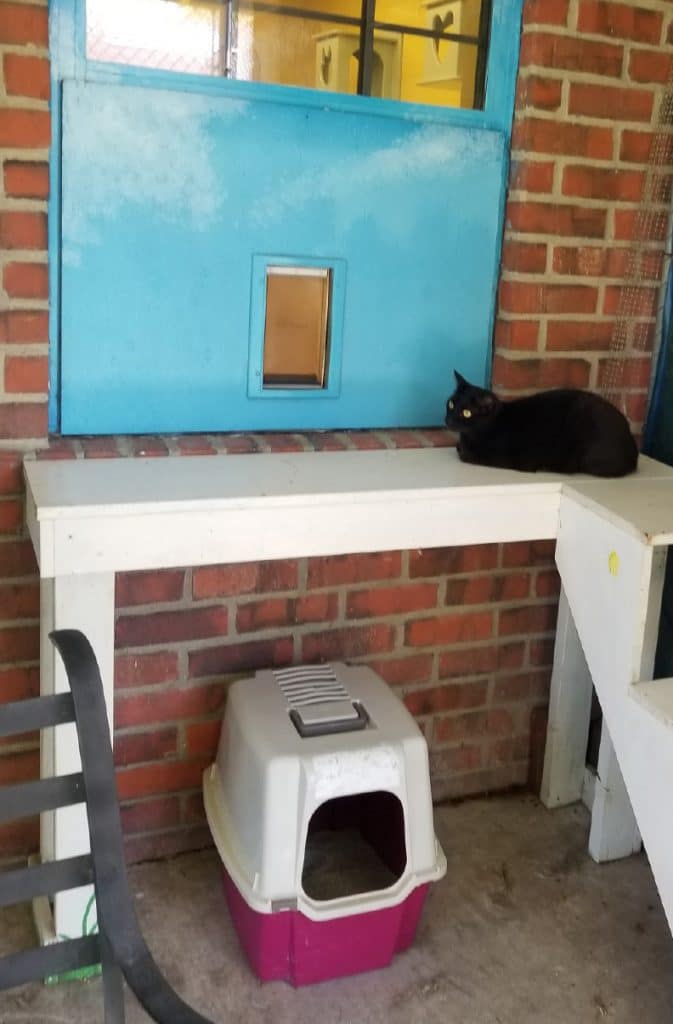











Comments are closed.